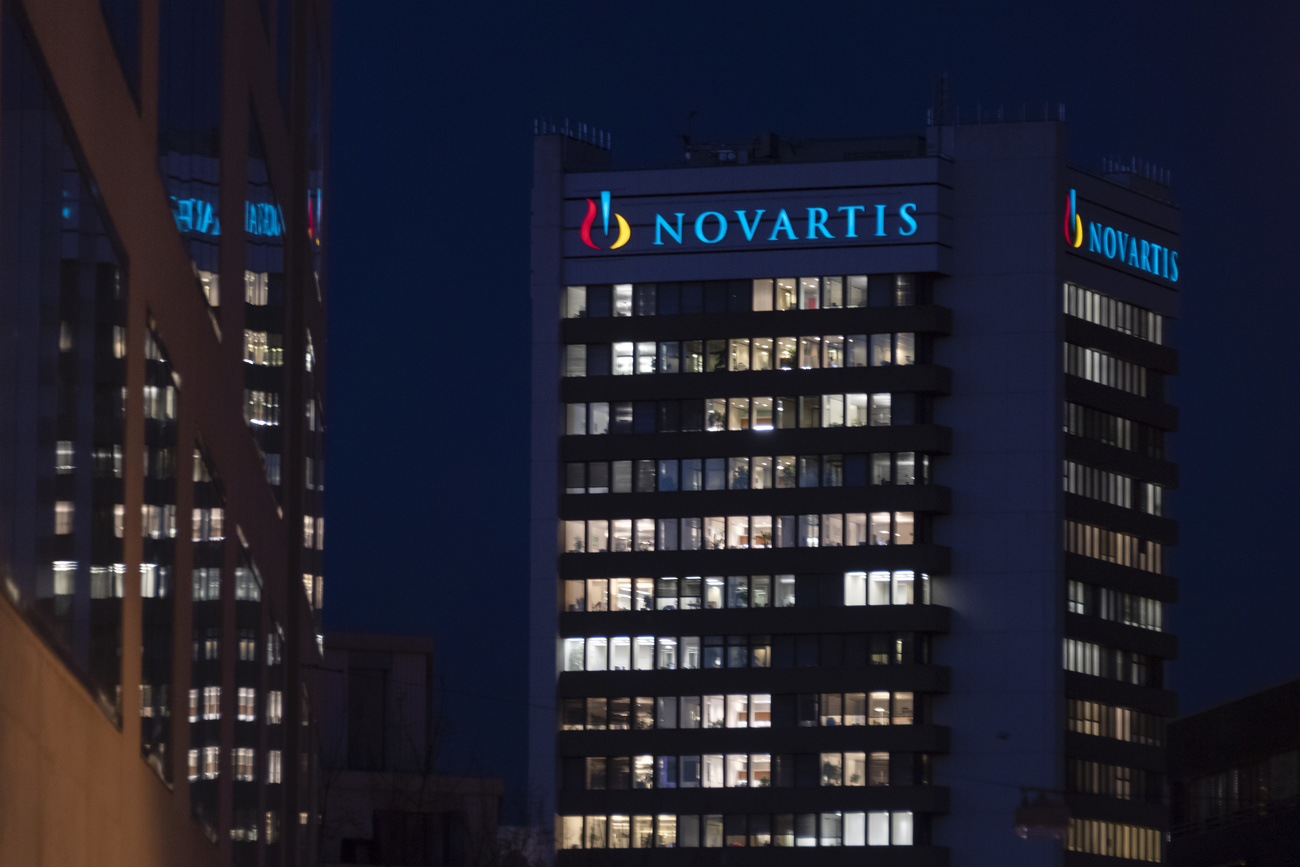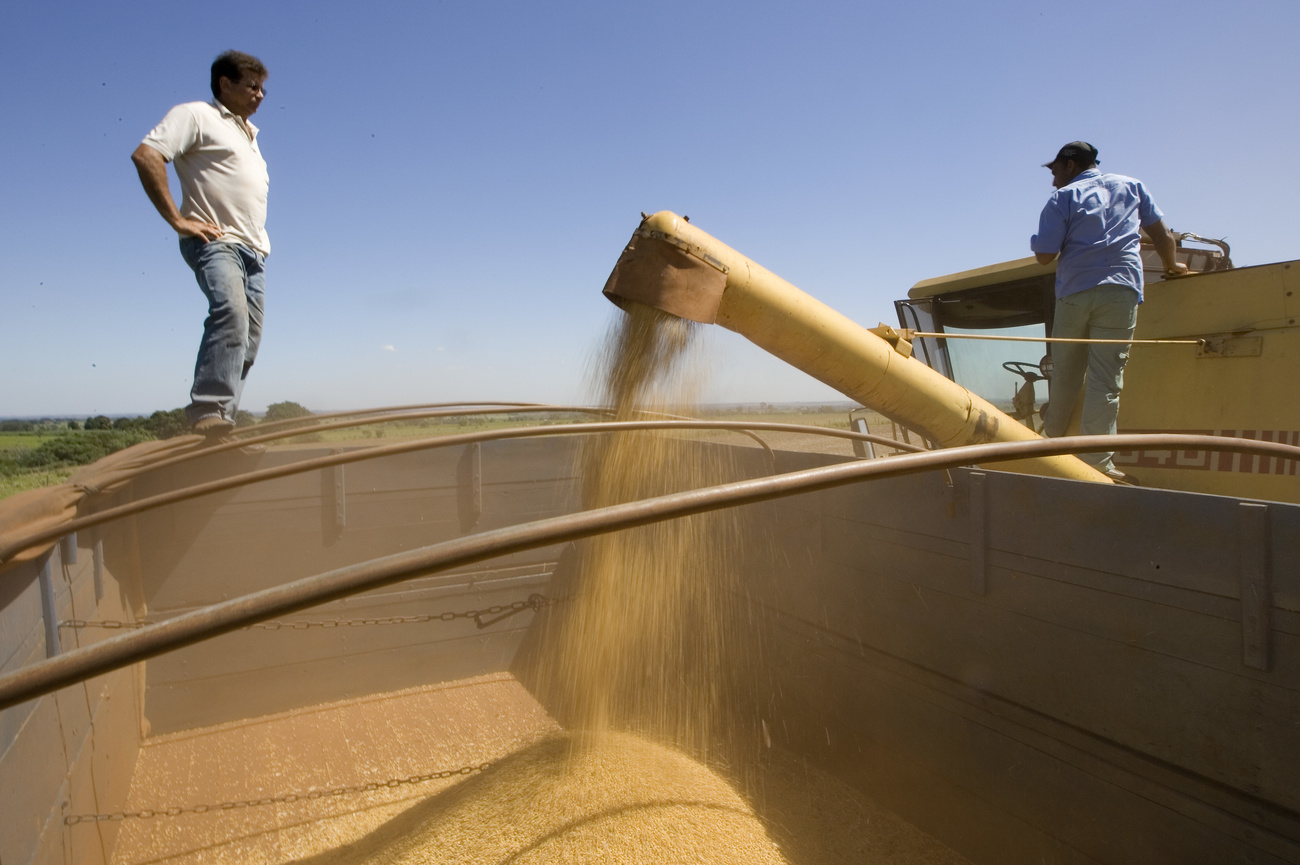Escaping climate change liability just got a bit harder
It’s not enough to sell off dirty assetsExternal link as Holcim learned this week. The Swiss cement maker is the latest target of climate change litigation. And there’s some powerful math behind it.
If there ever was a David versus Goliath story, this would be it. Four residents of Pari, an Indonesian island threatened by rising sea levels, are suing the largest cement maker in the world over its contribution to global warming. Flooding has already damaged houses and businesses on the island.
The four residents, with the backing of NGOs and a highly professional campaign, have filed a civil suit in Zug where Holcim has its headquarters. They want the company to pay its share of compensation for damages already caused by climate change, as well as financial support for flood protection measures. They are also demanding the company rapidly reduce CO2 emissions to avoid more damage.
Holcim sold its business in Indonesia in 2019 to a local cement manufacturer. But the case is less about the company’s activities in Indonesia, and more about the company’s global emissions. Holcim is the 47th largest polluter according to a rankingExternal link of companies by the University of Massachusetts. A new studyExternal link estimates Holcim (and its predecessor companies) produced nearly 8 billion tonnes CO2 from 1950 to 2021. That’s more than double what Switzerland producedExternal link over the same period.
The company has set targets to reduce CO2 emissions and has been selling off various assets that don’t align with its goal. But it’s a steep climb given building construction is responsible for around 10% of global emissions.
Whether the Pari residents have any chance at compensation is hard to say at this point. They are already breaking new ground though. This is the first time formal civil proceedings have been filed in Switzerland against a company for its contribution to climate change. This follows in the wake of a Dutch court, which in 2021 ordered Royal Dutch Shell – Europe’s largest energy company – to cut emissions substantially. There are currently more than 90 climate lawsuitsExternal link against companies outside the United States.
One hurdle these cases face is the lack of hard data to implicate companies. This is changing though. Earlier this week, Dartmouth College published the first studyExternal link putting some numbers connecting individual country emissions and this contribution to economic losses and gains in 143 countries.
The study argues, for example, that based on emissions generated over the 1990-2014 period, the US is responsible for reducing Indonesia’s economic growth by 0.065 percentage points each year. That amounts to $124 billion.
“This research provides an answer to the question of whether there is a scientific basis for climate liability claims. The answer is yes,” Christopher Callahan, the study author toldExternal link the Washington Post.
Are companies next? What’s your view on climate change litigation and the math behind it. Drop me a line: jessica.davis@swissinfo.ch
What else caught my eye?
Novartis announced sweeping job cuts as it consolidates parts of the business. Switzerland will bear the brunt of the job losses but the move is less a reflection of the company’s feelings towards its home base. It’s also not really about cost cutting given the company has plenty of cash. Instead, the announcement reflects wider trends in the pharmaceutical industry, I argue in a recent article. A large workforce is no longer a precondition to be a big player in the industry. It’s about having big medicines – that is, medicines that lead to dramatic changes for patients and large payouts for companies. This also means dramatic changes for pharma employees.

More
What’s behind the Novartis job cuts?
Commodity traders could face prosecution for war crimes if dealing in oil, grain and other commodities stolen from Ukraine. That’s according to the Swiss attorney general, who published an op-ed in the French language paper Le Temps. While this would be unprecedented, he said that beyond war crimes committed in Ukraine, there are also certain offences committed a considerable distance from an ongoing conflict that could have a direct link with it. He wasn’t aware of any convictions so far, but he said Swiss prosecutors were already conducting criminal investigations.

More
Trading looted commodities could be war crime, says attorney general
Nestlé and the Swiss government were in the hotseat again over nutrition label lobbying in Mexico. Based on internal email exchanges and documents, NGO Public Eye alleges that the Swiss government was “instrumentalised” by Nestlé to put pressure on the Mexican authorities to drop its nutritional labelling scheme intended to fight an alarming rise in obesity in the country. The company was unsuccessful, and the nutrition label was introduced and has become a model for many Latin American countries. Public Eye argues that this kind of lobbying isn’t an isolated case.
Soy commodity traders try to uncover “hidden” deforestation. Six of the world’s biggest commodity traders have committed to help some of their largest indirect suppliers source soy sustainably in Brazil’s vulnerable Cerrado region. Indirect suppliers are considered the weak link in the supply chain when it comes to stopping deforestation – a key challenge in the Cerrado. While traders have become better at tracking their direct suppliers, they rarely have any idea what their indirect suppliers are doing or have any influence on them. The six traders are helping set up monitoring and traceability schemes for 19 indirect suppliers in the region.

More
Biggest soy traders enlist indirect suppliers to tackle hidden deforestation

In compliance with the JTI standards
More: SWI swissinfo.ch certified by the Journalism Trust Initiative










You can find an overview of ongoing debates with our journalists here . Please join us!
If you want to start a conversation about a topic raised in this article or want to report factual errors, email us at english@swissinfo.ch.